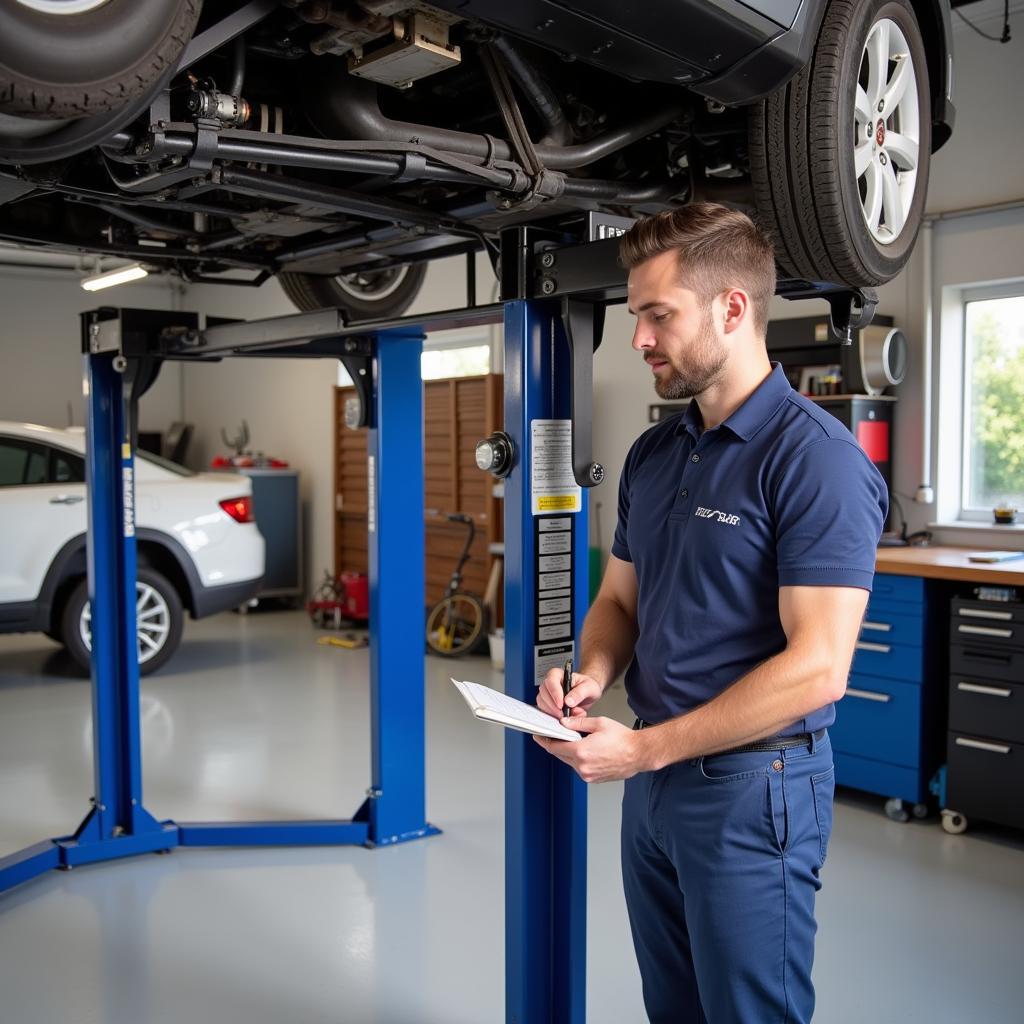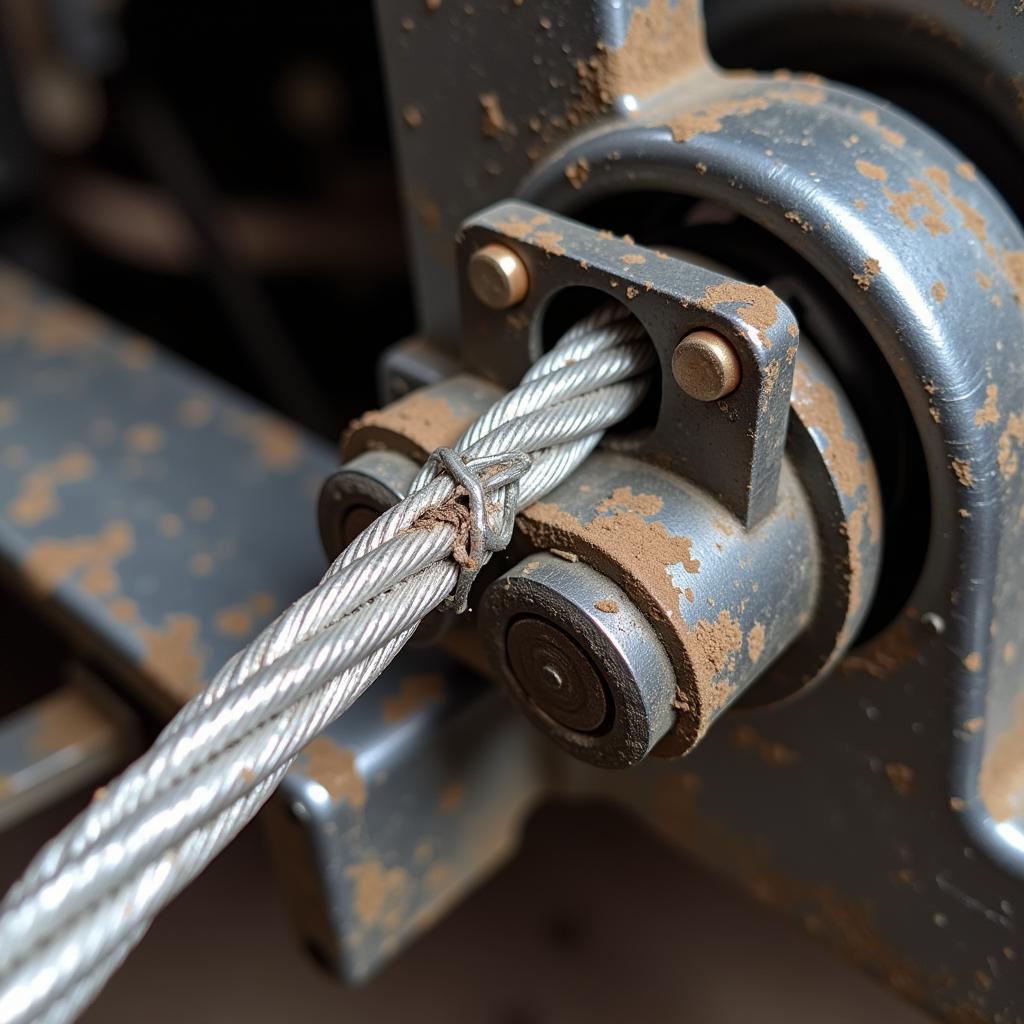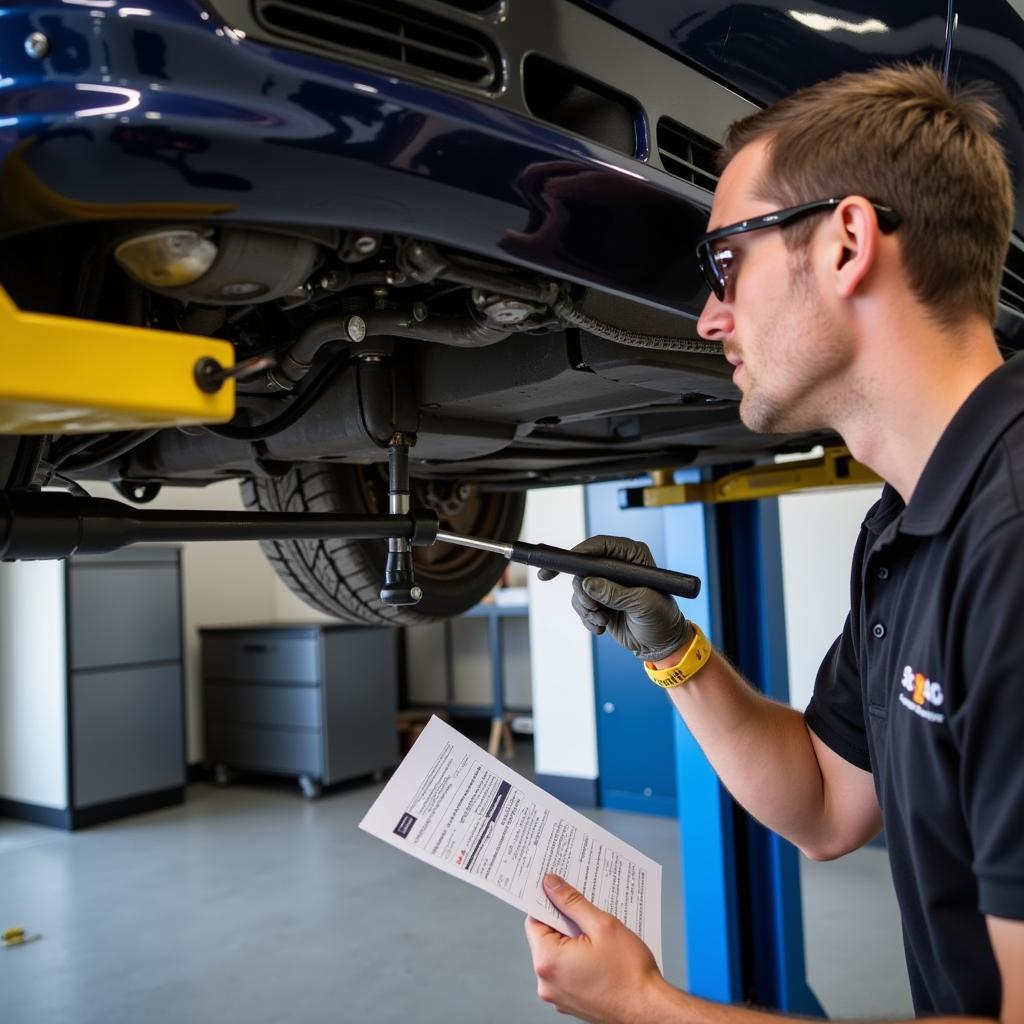Car Hoist Maintenance is crucial for the safety and longevity of your equipment. Regular upkeep not only prevents costly repairs but also ensures a safe working environment for your technicians. This guide provides in-depth information on car hoist maintenance, covering everything from daily checks to annual inspections. Let’s dive into the specifics of keeping your car hoist in top condition.
 Regular Car Hoist Maintenance
Regular Car Hoist Maintenance
Daily Car Hoist Maintenance Checklist
Daily inspections are the first line of defense against potential problems. These quick checks can identify minor issues before they escalate into major headaches. Here’s a simple daily checklist:
- Visual Inspection: Look for any obvious signs of damage, such as cracks, leaks, or frayed cables.
- Hydraulic Fluid Levels: Check the hydraulic fluid levels and top off if necessary. Low fluid levels can lead to reduced performance and potential damage.
- Control Operation: Test all controls to ensure they are functioning smoothly and responsively.
- Safety Locks: Verify that the safety locks engage correctly.
What does daily maintenance entail? It involves a quick but thorough check of essential components to ensure safe and efficient operation.
Why is car hoist maintenance so important?
Neglecting car hoist maintenance can have serious consequences. A malfunctioning hoist can lead to accidents, injuries, and damage to vehicles. Regular maintenance minimizes these risks and protects your investment.
 Damaged Car Hoist Cable
Damaged Car Hoist Cable
Furthermore, routine car hoist maintenance can extend the lifespan of your equipment. By addressing minor issues early on, you can prevent them from developing into major problems that require expensive repairs or replacements. Think of it like changing the oil in your car – a small investment in preventative maintenance can save you a lot of money in the long run.
Annual Car Hoist Inspections: A Deeper Dive
While daily checks are essential, annual inspections provide a more comprehensive assessment of your car hoist’s condition. A qualified technician should perform these inspections, which typically involve:
- Thorough Visual Inspection: Examining all components for wear and tear, including cables, chains, hydraulic hoses, and structural elements.
- Functional Testing: Testing all hoist functions, including lifting, lowering, and safety mechanisms.
- Lubrication: Lubricating all moving parts to reduce friction and wear.
- Hydraulic System Inspection: Checking the hydraulic system for leaks, pressure, and proper fluid levels.
- Electrical System Inspection: Inspecting the electrical system for damage, loose connections, and proper grounding.
How often should a professional inspect my car hoist? Aim for a thorough annual inspection by a qualified technician to ensure optimal performance and safety.
 Car Hoist Annual Inspection
Car Hoist Annual Inspection
Common Car Hoist Maintenance Issues
Some common car hoist maintenance issues include worn cables, leaking hydraulic fluid, and malfunctioning controls. Addressing these problems promptly can prevent more serious damage and ensure the safe operation of your equipment.
John Davis, a seasoned automotive technician with over 20 years of experience, advises, “Regular lubrication is key to preventing premature wear and tear on your car hoist. It’s a simple step that can significantly extend the life of your equipment.”
Troubleshooting Your Car Hoist
If you encounter problems with your car hoist, start by checking the owner’s manual for troubleshooting tips. If you are unable to resolve the issue, contact a qualified car hoist technician for assistance.
Maria Sanchez, a leading car hoist maintenance expert, emphasizes, “Never attempt to repair a car hoist unless you are properly trained and qualified. Improper repairs can be dangerous and can void your warranty.”
Car Hoist Maintenance: A Summary
In conclusion, car hoist maintenance is essential for the safety, longevity, and efficient operation of your equipment. Implementing a regular maintenance schedule, including daily checks and annual inspections, can prevent costly repairs and ensure a safe working environment. Don’t hesitate to contact us at AutoTipPro at +1 (641) 206-8880 or visit our office at 500 N St Mary’s St, San Antonio, TX 78205, United States for expert advice and assistance with your car hoist maintenance needs. Your safety and the safety of your team are our top priority.
bmw engine out of car for maintenance
FAQ
- What type of hydraulic fluid should I use in my car hoist? Consult your owner’s manual for the recommended hydraulic fluid type.
- How often should I lubricate my car hoist? Refer to your owner’s manual for the recommended lubrication schedule.
- What should I do if my car hoist is making unusual noises? Stop using the hoist immediately and contact a qualified technician for inspection.
- Can I perform annual inspections myself? While some basic maintenance can be done by the owner, annual inspections should be performed by a qualified technician.
- How can I prevent rust and corrosion on my car hoist? Regularly clean and lubricate your hoist to protect it from the elements. Store it in a dry, protected area when not in use.
- What are the signs of a worn cable? Look for frayed strands, kinks, or other signs of damage.
- How much does car hoist maintenance typically cost? The cost of maintenance varies depending on the type of hoist, the extent of the work required, and the location.





Leave a Reply